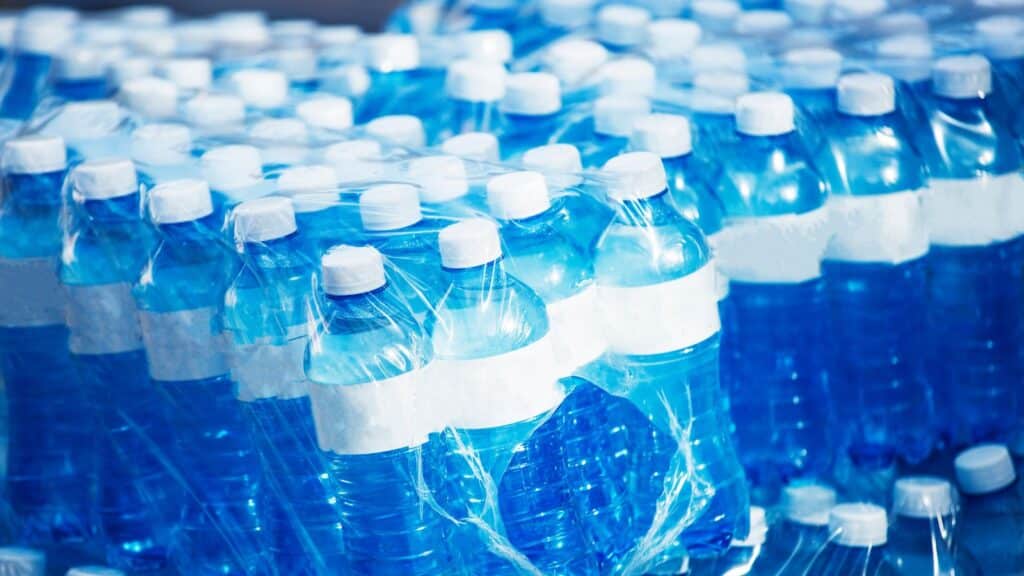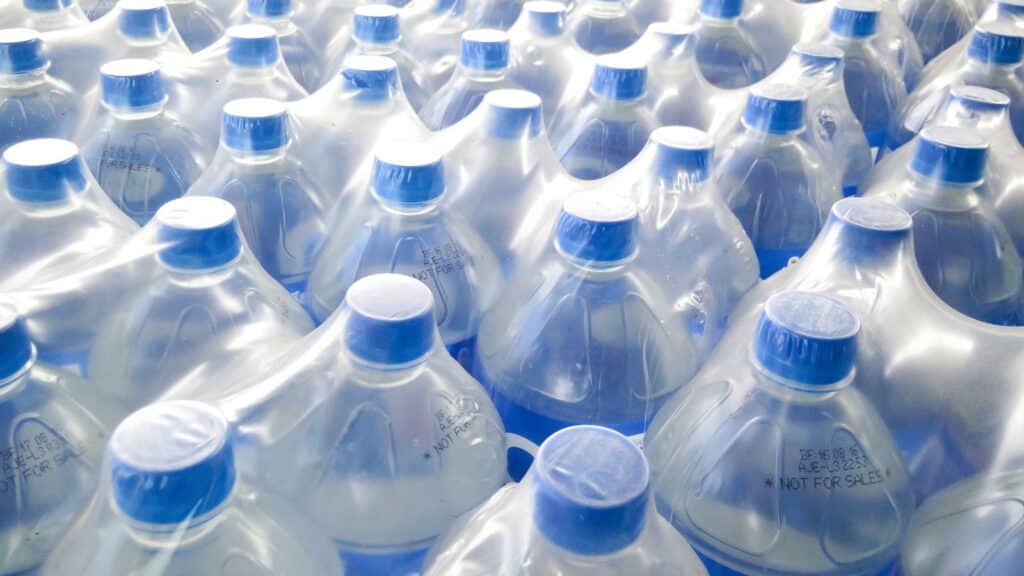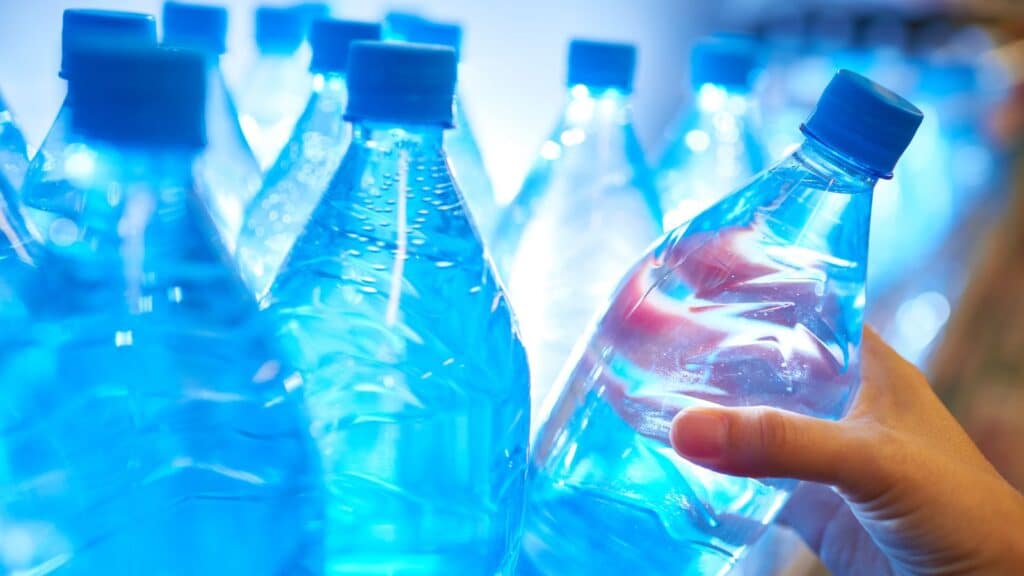Fiji Water recently announced a recall affecting a specific batch of its products due to safety concerns. The news has prompted widespread discussion among consumers. Especially those who value the brand for its quality and reliability.
Addressing worries about baby water is vital in this context. It’s essential to highlight that the Fiji Water recall does not include the brand’s baby water line. Ensuring parents have accurate information helps maintain trust and allows them to make informed decisions regarding their infants’ hydration needs.
Background on the Recall
The recall involves 1.9 million Fiji Water bottles sold through Amazon, which were distributed to customers between February 1 and March 3, 2024. These bottles were part of a larger Fiji Natural Artesian Water 500 mL (24 pack) Cases shipment.
Reason of Recall
The reason for the recall is the presence of elevated levels of manganese and bacteria in the water. This contamination poses no immediate health risk, but it is still important to address the issue to ensure the quality and safety of the product.
Classification of the Recall
The FDA has classified the recall as a Class III recall, indicating that it does not pose a significant health risk to consumers. This classification is given to recalls that involve products that are not life-threatening but still require attention to maintain public health and safety.

Key Points about the Recall
Fiji Natural Artesian Water has voluntarily recalled certain products due to potential quality issues. The recall affects Fiji Natural Artesian Water 500 mL (24 pack) Cases produced on specific dates. Consumers are advised to check their products for the affected UPC codes to determine if they are part of the recall.
Dates of the Recalled Products
The recall involves Fiji Natural Artesian Water 500 mL (24 pack) Cases, which were produced on specific dates. These dates include November 11, 2023, November 12, 2023, November 13, 2023, November 24, 2023, and November 25, 2023. The recall aims to ensure the safety and quality of the products.
UPC Codes
The affected products have specific Universal Product Codes (UPCs). These UPCs are 6 32565 00004 3 for the case and 6 32565 00001 for individual bottles. Consumers should check their products for these UPCs to determine if they are part of the recall.
Consumers who have purchased the recalled products should stop using them immediately. They should also return the products to the place of purchase for a full refund.
Impact on Baby Water
When news breaks about a water recall, it’s understandable for parents to be concerned about any possible effects on their children’s products. In the case of the recent Fiji Water recall, clarity is key to reassure those caring for infants.
No Impact on Baby Water
The recalled Fiji Water products were only sold on Amazon from February 1 to March 3, 2024. They did not reach baby food or formula manufacturers. This information is crucial for parents who might worry about the safety of water used in baby products.
No Contamination in Baby Products
This recall has no impact on baby water or formula products. These products are made separately, following strict quality control measures. Parents can feel assured that baby water and formula remain safe and untouched by the recall concerns.
Health Effects of Manganese and Bacterial Contamination
Manganese is a metal found in natural environments. The FDA sets acceptable levels of manganese in drinking water. If people drink water with manganese levels above these standards for a long time, they may face health risks. These risks include problems with memory, attention, and motor skills.
Water can also carry harmful bacteria. Some of these bacteria can cause stomach upset, diarrhea, and infections. The most common bacteria in contaminated water include E. coli and Salmonella. If consumed, these bacteria pose serious health risks.
Signs and Symptoms
If you have been drinking water with high levels of manganese or harmful bacteria, you might notice symptoms like nausea, memory loss, or trouble concentrating. These signs can lead to more severe health issues over time. Therefore, it’s crucial to recognize them early.
Health experts advise that if you think your water is contaminated, stop drinking it immediately. You should use bottled water or boil your tap water before use. It is also wise to have your water tested and consult a healthcare provider if you experience any symptoms.
Fiji Water’s Response and Corrective Actions
Upon discovering the contamination, Fiji Water took swift action to address the issue:
- Issued a Voluntary Recall: Fiji Water promptly recalled affected products from the market.
- Notified Retailers and Distributors: The company alerted its distribution network to halt sales and remove the contaminated products from shelves.
- Inspection and Analysis: They conducted thorough inspections and analyses to pinpoint the contamination source.
Fiji Water implemented preventive measures to prevent such issues in the future:
- Enhanced Filtration Systems: The company improved its filtration processes to effectively remove impurities.
- Stricter Quality Control Protocols: Fiji Water introduced stricter testing protocols at various stages of its bottling process.
- Regular Employee Training: The company now provides ongoing training to ensure all staff adhere to the highest safety and hygiene standards.

Cooperation with Regulatory Agencies
Fiji Water is actively working with regulatory bodies, including the FDA:
The company reports all findings and corrective actions to the FDA to ensure compliance with safety standards. They have also welcomed external audits to verify the safety and purity of their products moving forward. Through these measures, Fiji Water strives to comply with regulations and ensure the safety of its consumers.
Fiji Water’s commitment to transparency has been evident in its approach to communication:
- Customer Service Hotline: The company set up a dedicated hotline for customers to report issues or ask questions related to the recall.
- Regular Updates: Fiji Water provides regular updates through its website and social media platforms to inform customers of the recall status and any new developments.
Consumer Rights and Recourse
Consumers have specific rights regarding refunds or replacements when a product like Fiji Water is recalled. Here’s what you can do:
- Request a Refund: Return the product to the place of purchase for a full refund. Keep your receipt as proof of purchase.
- Ask for a Replacement: If you prefer, you can ask for a replacement bottle or pack free of charge.
Consumer Protection Law
Consumer protection laws ensure that customers are not lost when products are recalled. These laws require companies to promptly refund, repair, or replace defective products. They also protect consumers from false advertising and compel companies to address safety concerns.
If you have experienced any adverse effects from the recalled product, it is crucial to report these issues. You can:
- Contact the FDA: Use their website or hotline to report health-related problems.
- Inform Fiji Water: Reporting directly to the company can also help track the impact of the recall.
For further assistance, several resources are available:
- Consumer Protection Agencies: Local or national agencies offer guidance and support when dealing with recalled products.
- Legal Advisors: If you need more personalized advice, consulting a legal expert specializing in consumer rights can be beneficial.
Learning from the Recall
The recall serves as a reminder of the importance of monitoring the water we consume. Here are some steps to ensure your home water supply is safe:
- Test Your Water: Use home testing kits at hardware stores to check for contaminants like lead, bacteria, or pesticides.
- Inspect Regularly: Check for unusual colors, odors, or tastes in your water, which can indicate contamination.
It’s also wise to invest in a reliable water filtration or purification system. Here are recommendations:
- Consider Filtration Systems: Consider options like activated carbon filters or reverse osmosis systems. These can help eliminate pollutants and improve taste.
- Choose Based on Need: Pick a system that targets the specific contaminants identified in your water test results.
Should you discover contaminants in your water supply, take immediate action:
- Report to Local Authorities: Inform your local water authority so they can investigate and address the issue.
- Use Bottled Water Temporarily: Until the issue is resolved, use bottled water for drinking and cooking.
To maintain the quality of bottled water at home, follow these best practices:
- Store Properly: Keep bottled water in a cool, dry place away from direct sunlight.
- Check Expiry Dates: While water doesn’t expire, the plastic can degrade and affect the taste over time.

Conclusion
Fiji Water’s recall was specific and targeted to avoid any health risks associated with the contaminated products. The company classified the recall properly and acted to ensure public safety. It’s important to note that baby water, or nursery water, remains unaffected by this recall.
Staying informed about product recalls is vital for consumer safety. It helps you take quick and appropriate action to protect your health and your family. Keep an eye on recall announcements and always adhere to the guidance provided.



